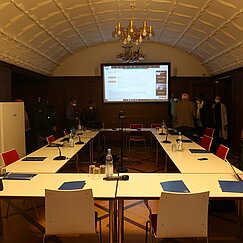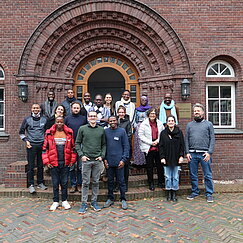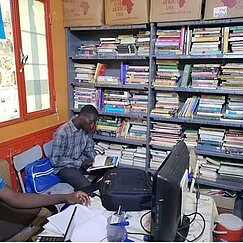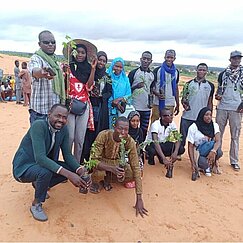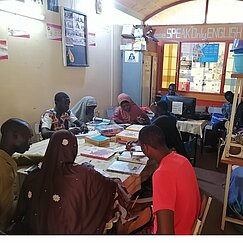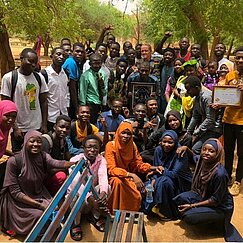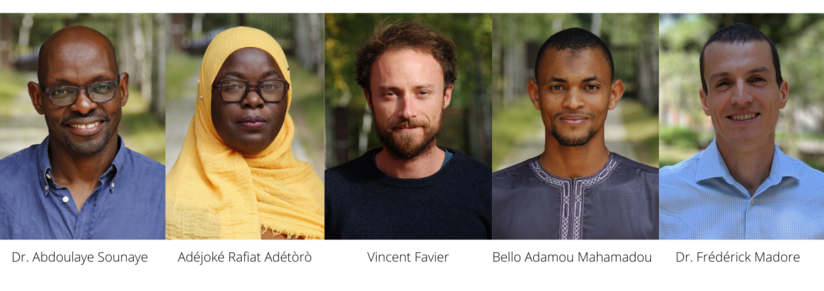
Religion, Morality and Boko in West Africa: Students Training for a Good Life (Acronym: Remoboko)

Religion, Morality and Boko in West Africa: Students Training for a Good Life (Acronym: Remoboko)
Head of project: PD Dr. Abdoulaye Sounaye
Remoboko is a study of religiosity and how it affects secular education (boko, in Hausa) in West Africa. It focuses on the presence, competition and conflict between secularism, Salafism and Pentecostalism on four campuses (Université Abdou Moumouni, Niamey, Niger; University of Ibadan, Ibadan, Nigeria; Université de Lomé, Togo; and Université d’Abomey-Calavi, Bénin). It examines how students that seek a degree that would ensure them a better life, resort to Salafism and Pentecostalism. How boko in this context is both appealing and rejected is at the core of the project.
In Niger and Nigeria, boko is criticized for being morally corruptive, culturally alienating and socially unfit because it supposedly lacks grounding in religious norms. In targeting secular schools in countries such as Niger and Nigeria, the terror organization Boko Haram has illustrated the problematic nature of boko and the dark side its appropriations may have. Across Africa, Salafis and Pentecostals have targeted learning institutions. These religious groups criticize these institutions for practices and values they deem inauthentic and dangerous. In that process, as one may notice on campuses across West Africa, students have become religious actors in their own right, challenging and redefining conceptions of good life and being a student.
Are these dynamics signaling a de-secularization of academia? How is this process affecting the “secular” which has shaped both the mission of the university and its practices? What is then the impact of these developments on the university as an institution of training, critical thinking, knowledge production and socialization? How can fostering critical abilities and enlightening the minds of students be reconciled with nourishing and imbuing souls with absolute certainties? How do these developments affect attitudes towards academic training, interactions among students, with teachers, gender relations and campus regulations? How do university authorities then manage the diversity and the pluralism, but also the competition, friction and outright clashes these developments entail? How does this affect the experience of being a student, a good Muslim and a good Christian? How are the “salvation goods” Salafis and Pentecostals offer, contribute to make life good?
It is important to keep in mind that these dynamics emerge on campuses previously dominated by leftist movements and secular ideologies (Marxism-Leninism, Maoism, Laicité). Therefore, beyond the issues that emerge with Salafi and Pentecostal co-habitation of the campus, this project engages the overarching question of the redefinition of the student as an intellectual and sociocultural model. As the university undergoes this change and transformation process, a key goal of the project is to understand the re-entanglement first, between religious traditions, and then, between the religious and the secular.
Remoboko is a Leibniz Junior Research Group and runs from June 2018 until May 2023. It is based at Leibniz-Zentrum Moderner Orient of Berlin (ZMO) and is funded by resources of the Leibniz Competition.
Research fellows:
Project Coordinator:
- Maija Susarina (on leave)
- Rakiya El Matine (stand-in)
Blog
On our blog you will find more information about the project and the fellows, but also about upcoming events, workshops and call for papers:
Three questions to...
Three questions to Bello Adamou Mahamadou. More interviews and videos can be found on the YouTube channel.
Islam Burkina Faso Collection
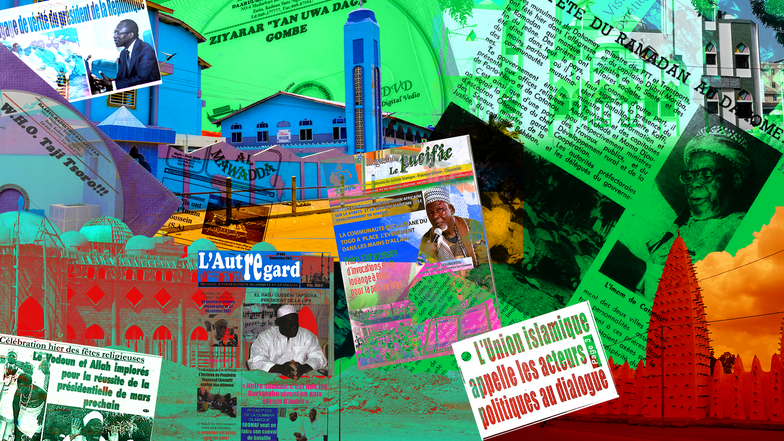
Alongside his research project, Dr. Frédérick Madore works on the Islam West Africa Collection, a collaborative, open-access digital database that currently contains over 5,000 archival documents, newspaper articles, Islamic publications of various kinds, audio and video recordings, photographs, and references on Islam and Muslims in Burkina Faso, Benin, Niger, Nigeria, Togo and Côte d‘Ivoire. This project, funded by the Berlin Senate Department for Science, Health and Care, is a continuation of the award-winning Islam Burkina Faso Collection created in 2021 in collaboration with the University of Florida (USA).
The Martin Luther King English Club
Bello Adamou Mahamadou researches religious dynamics and the interaction between religion and secularism at the Abdou Moumouni University of Niamey, Niger. In the course of this, he came across the Martin Luther King English Club. The club organises English learning courses in which American evangelists also participate. They use these learning events to spread their evangelistic messages to the participating students. In this way, they try to convince the students to convert. The evangelists also take part in other activities organised by the club, such as health care, visits, personal development training, etc.
Video report from the conference "From Senegal to Nigeria: The Modernity of Islam in West Africa. Practices, Influences, and Trajectories.", 19.-23. November 2019 in Niamey, Niger
Islam-related socio-political developments in West Africa have not only made the headlines, they have also become the centre of attention in the study of contemporary Africa and Muslim societies. This is in part because they have unveiled unfamiliar appropriations of Islam, including violent ones. How are we to understand these processes? What are their historical and cultural trajectories? What modernity of Islam and Muslim societies do they call attention to? By prioritising a regional perspective and the entangled history of Islam there, in particular in relation to the Middle East, North Africa and increasingly Turkey, the workshop shed light on the various dynamics that shape contemporary Islam and Muslim life in the region. While offering a comparative reading of Islam in the longue durée, the conference was also an opportunity to reflect on the transformations, continuities and ruptures within these trajectories of Islam across the region.
Sponsored by the Volkswagen Foundation under its initiative "Knowledge for Tomorrow – Cooperative Research Projects in Sub-Saharan Africa". The conference promoted institutional cooperation between Leibniz-Zentrum Moderner Orient (ZMO) and LASDEL, a research institute based in Niamey. The conference also aimed to promote younger scholars from West Africa, mostly doctoral candidates and post-docs, by giving them the opportunity to present and discuss their work and research, by creating some visibility for their research, and an opportunity of networking internationally with other young researchers.
